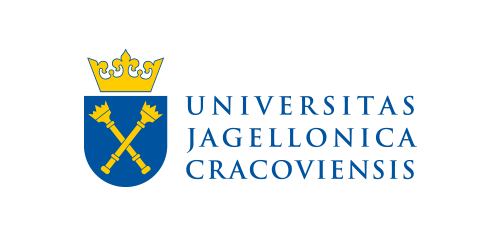Goal the project
Fix Neutropenia (FIXNET): focusing on neutrophil proteases defects which serve as novel diagnostic and therapeutic options
Childhood neutropenia is a heterogeneous group of immunodeficiency and is characterized by a significantly reduced count of neutrophilic granulocyte. Neutrophils as the most abundant type of white blood cells are an essential part of the innate immune system, they ingest, kill, and digest microbial pathogens.
The current neutropenia diagnosis is based on serial blood morphology test and clinical features such as recurrent infections and mucositis. Distinguishing the molecular basis of the diseases it is not possible at the diagnosis, thus doctors don’t know whether the patient suffers from congenital neutropenia or transient form, resulted from immunological reason e.g. after a viral infection. In that case, the pediatrician ought to postpone protective vaccinations, which leads to over 3,000 cases of unvaccinated children annually in Poland. In congenital neutropenia with genetic defects, there is a need to develop a faster and cheaper method of comprehensive diagnosis and treatment. Nowadays, the mutation of the gene responsible for this disease is unknown in about 30-40% of congenital neutropenia patients.
The main cause of neutrophils deficiency are inhibition of granulocytes maturation, arrest in bone marrow, or molecular defects inducing apoptosis. Neutrophils contain specialized granules that possess many proteins, including specific neutrophilic serine proteases. These proteases are necessary for the maturation and functioning of the entire cell, thus mutations in proteases encoding genes lead to neutrophil defects.
The project involves combining the clinical and genetic data with the biology of neutrophilic serine proteases. The main goals are the search for defects in new genes that cause neutropenia, identification of the protease role in neutrophil disorders, designing a unique diagnostic test, and an effective and safe targeted therapy method based on gene editing.
Project stages
Stage 1. The search for patients with neutropenia for the evaluation of their clinical characteristics.
Stage 2: The targeted genetic analysis of the patients with congenital neutropenia.
Stage 3: The whole exome/whole genome genetic analysis of the patients with congenital neutropenia.
Stage 4: The generation of the iPS cells repository from the patients with congenital neutropenia.
Stage 5: Gene editing for correction of the various identified mutation causing neutropenia in human cells.
Stage 6. The application of fluorescent-labelled activity-based probes to dissect the distribution of active neutrophil serine proteases (NSPs) within particular organelles in neutrophils.
Stage 7. The synthesis and application of metal-labelled activity-based probes to dissect the activity of NSPs and their interactions with serpins in neutrophils from healthy donors and neutropenia patients.
Stage 8. Functional analysis of samples from patients suffering from neutropenia and healthy individuals.
Stage 9. Generation of a mouse model with mutations within selected genes.
Stage 10. Verification of neutrophil functionality in infectious mouse models in vivo.
Project value
Patients diagnosed with congenital neutropenia and their family members as well as patients with immune-mediated neutropenia will be recruited to the project. This will create an extensive database that, together with the collected material samples (blood, bone marrow, urine), will be a repository of knowledge that can be used to develop the project in the future.
The new generation sequencing and direct sequencing techniques used in the project will enable a thorough understanding of the genetic basis of congenital neutropenia, as well as allow the identification of completely new genes related to its pathogenesis and course. One of the main assumptions of the project is the use of labeled peptide probes dedicated to specific neutrophilic proteases, which in the case of genetically conditioned neutropenia, are characterized by variable location in neutrophils. This will allow for the development of a quick and inexpensive diagnostic test to differentiate the causes of neutropenia. The use of CRISPR/Cas9 technology in the correction of hematopoietic CD34+ stem cells from patients, followed by their differentiation towards neutrophils, will enable the use of cell therapy of congenital neutropenia and other hematopoiesis disorders, in the future.
The safety and effectiveness of such therapy will be assessed based on studies ex vivo in cell models and in vivo in mouse models. All activities used in the project will lead to the creation of a new diagnostic algorithm for patients with neutropenia and personalization of their treatment.
Popular science description
Neutrophil granulocytes are the most abundant white blood cells population. Low number of neutrophils in blood, known as neutropenia, frequently is linked with a high risk of life-threatening infection and affects childhood vaccination program. In Poland, approximately three thousand children suffered from neutropenia. In small proportion of these children, neutropenia is related to genetic defect. Neutrophils contain specialized set of granules which incorporate several functionally important proteins including enzymes called specific neutrophil serine proteases (NSPs). Mutations in NSPs genes frequently lead to neutrophil deficit. Thus, NSPs are essential for neutrophil development and action. The main objective of the current project is to marge clinical and genomic data with molecular biology of NSPs and unique highly selective chemical tools for identification of their role in neutrophil disfunction. Joined efforts of three academic centers will work together under umbrella of the FIXNET consortium to reach this goal. This will develop cutting-edge diagnostics and will explore new therapeutic horizons for patients with rare and common diseases associated with neutrophil disfunction.


